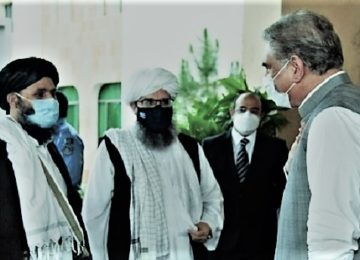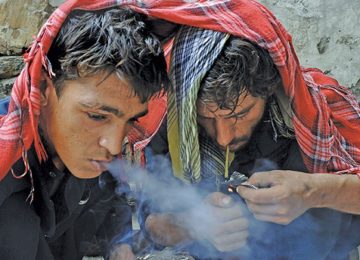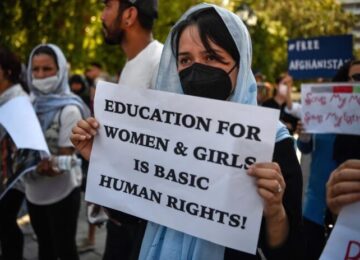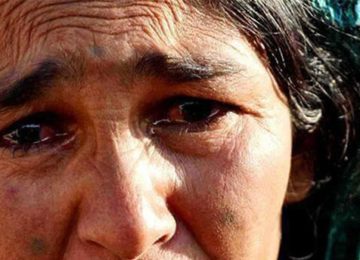A bitter political dispute in Afghanistan is expected to end after a powerful provincial governor announced that his agreement with the presidential palace in Kabul will soon conclude their tense, months-long standoff.
In a public speech marking the onset of the Persian new year on March 21, Atta Mohammad Noor told residents of northern Balkh Province that he had reached an agreement with President Ashraf Ghani that will see him leave his post after 14 years.
“I welcome and support the agreement between the Arg [presidential palace] and my party, Jamiat-e Islami,” he told a gathering of tens of thousands of revelers at the historic Blue Mosque in Balkh’s capital, Mazar-e Sharif.
“I am grateful that Jamiat-e Islami has empowered me to sign this agreement,” he said. “We will see this agreement signed between the two parties very soon.”
He said one of the three people he has nominated for the job will soon replace him as governor of the strategic province, which borders Uzbekistan.
First Deputy President Sarwar Danish said the agreement was a good omen for peace and stability in Afghanistan as the country prepares to hold parliamentary elections this year amid insurgent violence.
“Disunity and divisions have weakened the foundations of brotherhood in our country for years,” he said. “We are now determined to stamp out these divisions by cultivating and promoting national unity.”
Ghani ordered Noor to be replaced in December, but Noor refused to leave his post and powerbase.
“I have said many times that no one can remove me with a decree,” Noor told supporters on December 23.
Noor, a leading figure in the predominantly Tajik Jamiat-e Islami party, is sometimes dubbed the “King of the North” for effectively ruling Balkh for 14 years.
His political career began as an anti-Soviet guerrilla commander in the 1980s. He later fought against the Taliban in the 1990s but tenured into a politician after the demise of their hard-line regime in late 2001.
Noor is seen as one of the richest political figures in Afghanistan. Although supporters credit him with promoting Balkh as an oasis of stability and relative prosperity, he has been repeatedly accused of abuses and corruption.
In 2015, global rights watchdog Human Rights Watch noted there was “strong evidence that he controls and funds local militias implicated in serious abuse.”
Under his leadership, the emergence of Islamic State and Taliban largely avoided Balkh as residents of neighboring provinces grappled with mounting insecurity amid an expanding insurgency.
This article originally appeared on www.gandhara.rferl.org on March 21, 2018. Original link.
Disclaimer: Views expressed on this blog are not necessarily endorsed or supported by the Center for Research and Security Studies, Islamabad.








